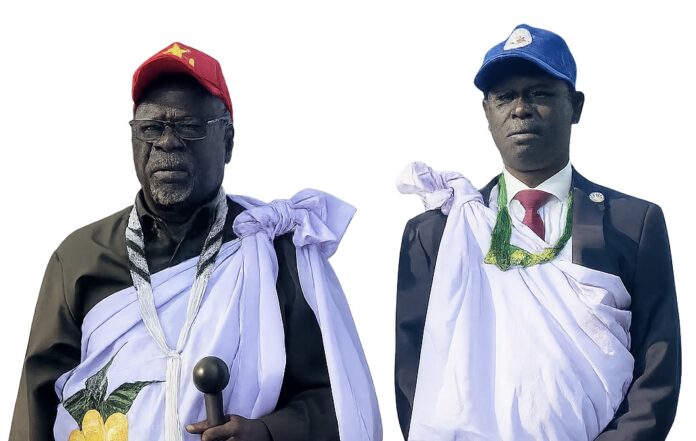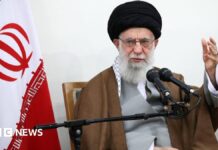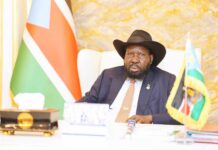Opinion | By Chuol Jany
The political winds blowing across Jonglei State are shifting and for once, they are shifting in a promising direction. Governor Dr. Riek Kok’s recent visit to Akobo, where he was warmly received by the IO-appointed Commissioner Hon. James Kueth despite pressure from hardline opposition voices, was more than a routine political engagement.
It was a cultural statement, a historical echo, and a reminder of who the Nuer truly are when we strip away the noise of modern political manipulation.
For generations, the Nuer people practiced a uniquely egalitarian and decentralized political system. There were no kings, no absolute rulers, and no political thrones to fight over. Authority was distributed among the cieng, (Clan) the (kuaar cieng) chiefs chosen through election with right of majority lineup behind their leader determined the winner, leadership was never enforced—it was earned.
This arrangement created one of the most democratic indigenous systems in Africa, grounded not in power struggles but in wisdom, moral authority, and community trust. The Nuer instinctively understood that concentrating power in the hands of one person would destroy the equality that held their society together.
Traditional Nuer political culture had a simple but powerful rule: politics must never cost human lives. Whenever conflict overshadowed leadership contests, elders halted the process until calm returned. Consensus mattered more than victory; peace mattered more than pride.
Leaders rose not because they could intimidate others, but because the people voluntarily placed confidence in them. Violence for political gain was considered morally unacceptable—an affront to community values and spiritual order.
This is why the IO Commissioner’s decision to receive Governor Kok publicly—and gracefully—cannot be dismissed as a mere political courtesy. It signals something deeper:
A renewed hunger for peace and cooperation, revival of the Nuer democratic ethos, where dialogue takes precedence over division
A rejection of the tired old strategies of “divide and rule” a recognition that people in Jonglei are exhausted by endless conflict and ready for leaders who put community first
In that moment of reception, regardless of political pressure, the Commissioner embodied the Naath spirit: welcome the guest, listen, consult, and build consensus. This is the political maturity our ancestors lived by.
Let us be honest: modern politics has distorted Nuer leadership traditions. Money, external influence, and party loyalties have created fractures unknown to our historical governance. We drifted from a system where leadership was earned through service to one where it is too often purchased or manipulated.
But communities are waking up. Many are beginning to realize that the old ways simple, fair, and morally grounded offer the only pathway out of the political darkness we have wandered into.
Scripture tells us, “Blessed are the peacemakers, for they shall be called children of God.”
Our culture has always lived this truth. Among the Naath, peace is sacred not merely a political preference, but a moral obligation. A leader who chooses peace is not just wise; he is spiritually honored.
Governor Kok’s peaceful reception in Akobo was more than symbolism. It was a sign that the Nuer are beginning to reclaim the political identity that once protected them from needless bloodshed and internal fragmentation.
If our leaders can embrace the spirit of dialogue, respect, and unity just as the elders of old did then Jonglei State may yet set an example for the entire country.
Returning to Nuer values means choosing peace over pride, cooperation over conflict, and democracy over division. And if this recent event is any indication, the people of Jonglei are ready for that return.





